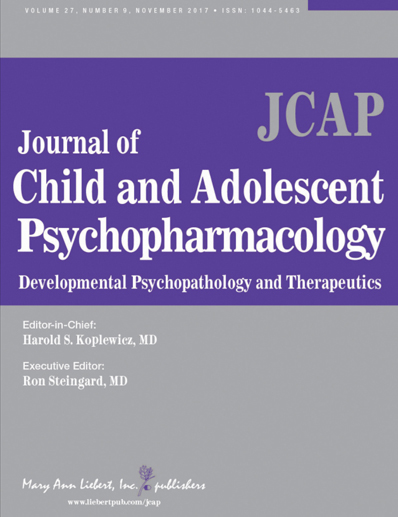The Journal of Child and Adolescent Psychopharmacology
Course of Neuropsychiatric Symptoms After Introduction and Removal of Nonsteroidal Anti-Inflammatory Drugs: A Pediatric Observational Study

This retrospective analysis, conducted at the Stanford PANS clinic, examines the impact of nonsteroidal anti-inflammatory medications on neuropsychiatric symptoms in PANS/PANDAS patients. The authors review the records of 218 patients. Their findings suggest that NSAIDs may be helpful for treating neuropsychiatric symptoms in some patients. The authors also provide a detailed description of the clinical course of three patients who had dramatic improvements in their neuropsychiatric symptoms corresponding with NSAID introduction, and clear deteriorations upon removal. 1
The Journal of Child and Adolescent Psychopharmacology
Pediatric Acute-Onset Neuropsychiatric Syndrome Response to Oral Corticosteroid Bursts

This article investigates the effectiveness of corticosteroids in patients treated at the Stanford PANS clinic for new-onset and relapsing/remitting PANS/PANDAS. The authors report that when given early in a flare, corticosteroids can more quickly improve symptoms and allow patients to achieve remission of symptoms more readily. Furthermore, longer courses of corticosteroids may result in lengthier, more durable periods of remission. 2
1 Spartz Ellen J., Freeman G. Mark Jr., Brown Kayla, Farhadian Bahare, Thienemann Margo, and Frankovich Jennifer. Journal of Child and Adolescent Psychopharmacology. September 2017, 27(7): 652-659. https://doi.org/10.1089/cap.2016.0179
2 Brown Kayla, Farmer Cristan, Farhadian Bahare, Hernandez Joseph, Thienemann Margo, and Frankovich Jennifer. Journal of Child and Adolescent Psychopharmacology. September 2017, 27(7): 629-639. https://doi.org/10.1089/cap.2016.0139
Clinicians: Schedule a Personal Phone Call with Clinical Staff
If you have interest in knowing how the Cunningham Panel™ biomarkers (Dopamine D1R, Dopamine D2R, Lysoganglioside GM1, Tubulin and CaMKII) can assist in diagnosing treatable autoimmune encephalopathies characterized by abnormal neuropsychiatric behaviors, please schedule an individual phone call with Moleculera Labs clinical staff by completing the information below, or call Amy Cross, RN, at 405-239-5254.





